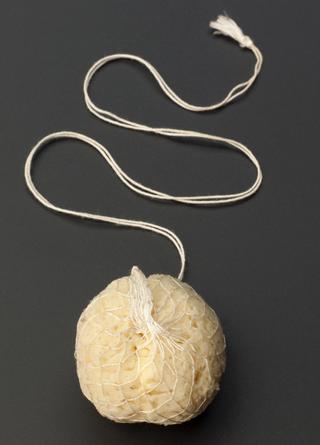
Iron chastity belt
- Made:
- 1501-1600

Iron chastity belt, lined with silk, possibly 16th century
Chastity belts are said to have been used as a method of ‘sin prevention’. They were historically used on women, but examples exist for animals to. The belts were first referenced in texts from the crusades which describe them being inflicted on wives by their husbands who had left for war. These belts demonstrate a misogynistic view of sexuality, something modern feminists are still fighting against.
However, it is thought that chastity belts may never actually have been used. Instead, it has been suggested that historical references of their use are examples of dark humour that poked fun at the male fear of infidelity, and some argue that existing examples of chastity belts are Victorian reproductions. Modern popular culture references of chastity belts often tend to be satirical, continuing the idea that these items were more for humour and entertainment than practical purposes.
Realistically, the (lack of) hygiene and comfort of a chastity belt alone would suggest they weren’t widely used – especially when you consider the logistics of managing menstrual cycles whilst wearing one, and the potential for injury on the sharp, metal parts.
Details
- Category:
- Obstetrics, Gynaecology & Contraception
- Collection:
- Sir Henry Wellcome's Museum Collection
- Object Number:
- A641279
- Measurements:
-
overall: 250 mm x 127 mm x 78 mm, .253 kg
- type:
- chastity belts




